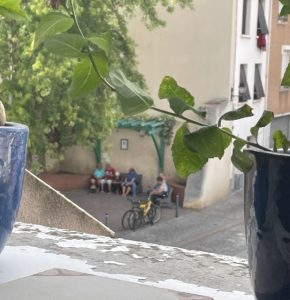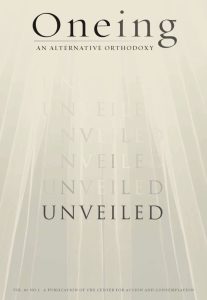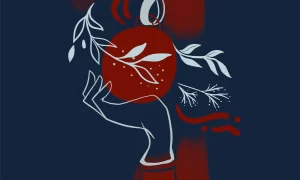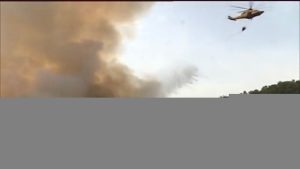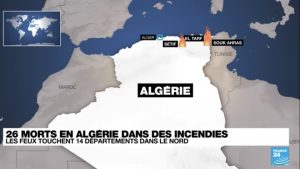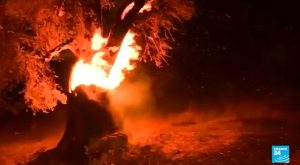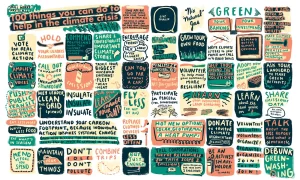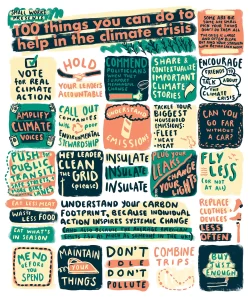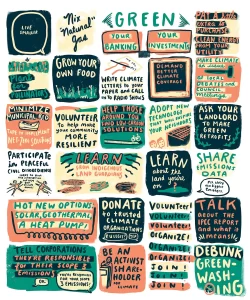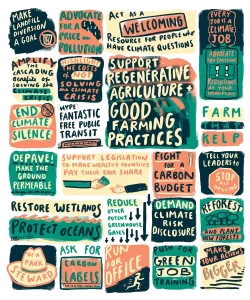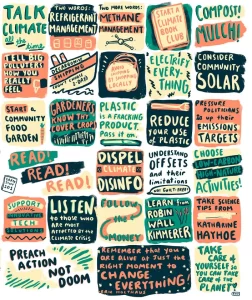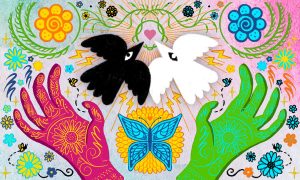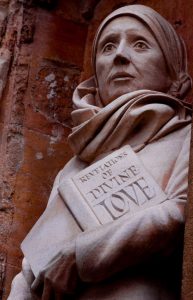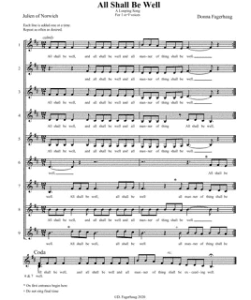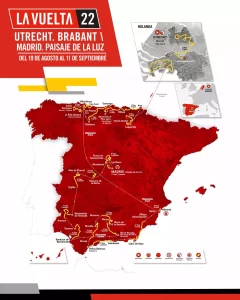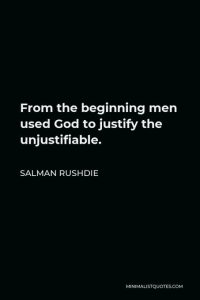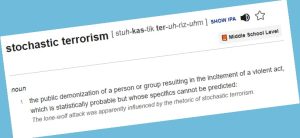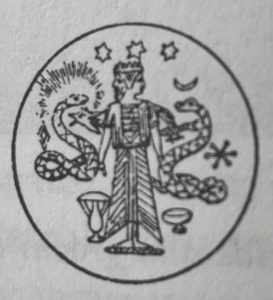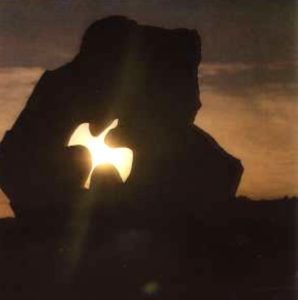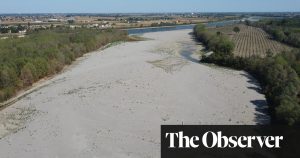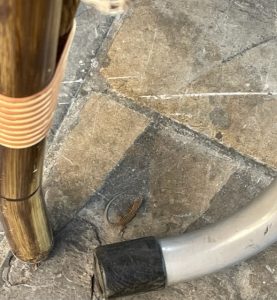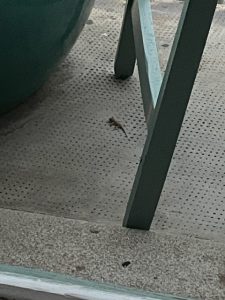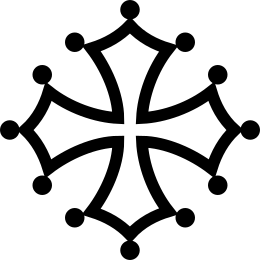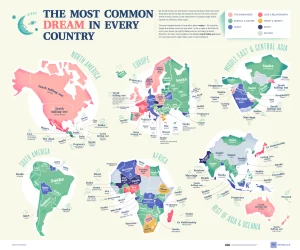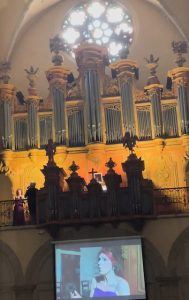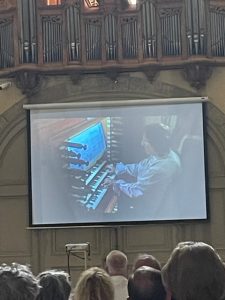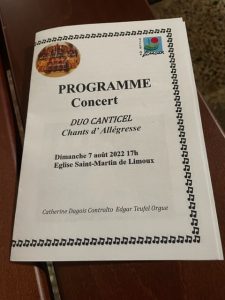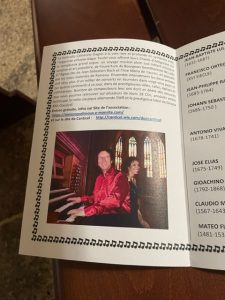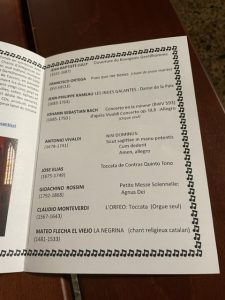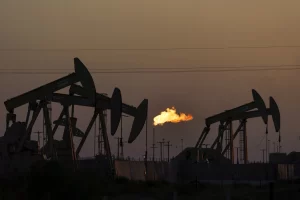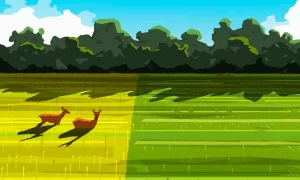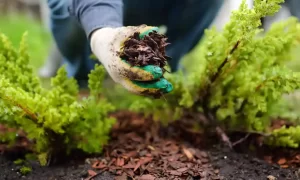Climate Breakdown
Dayle in Limoux – Day # 47
August 21, 2022The village people…nope, he ruined that phrase, too…the townspeople, when they meet in the in the little place [pronounced ‘ploss’], or square, down below without devices or agenda, are doing way more than nothing, they are doing everything. They c o m m u n i c a t e face-to-face with deep compassion and care for one another, and their tribe. They laugh, they dialogue…sometimes with incredible passion…sometimes silence. And it goes on for hours. They sit under the trees with their cool, cross natural ventilations and circulation, living with the heat not against.
🌱
And I thought of them when I read an email from one of my favorite beings on the planet right now, Baratunde Thurston, a writer and cultural critic. He contributes to PUCK. I learned of him watching Brian William’s ’11th Hour’ where he appeared a number of times with clarity and perspective, which, to me, was always right on. He wrote so beautifully from a place of anguish after witnessing the violent slap on the Oscar stage.
🌱
I was reminded of the French townspeople here in Limoux when he writes about his travels these summer months in Europe, particularly in Southern France/Spain when he refers to the blistering heat and the climate breakdown. I had some other things to share with you today, yet, I find his writing so profound and important, as well as in alignment with my own thoughts and feelings right now, I decided to share his email, as well as an event he has planned for NYC in September, free for those who join virtually. Sending him a virtual {hug} for that; thank you, Baratunde.
|
Buongiorno! I’m still on vacation, but I can confirm I will be returning, later than planned yet sooner than desired. After traveling for one month so far, it occurred to me this is the longest continuous amount of time I’ve spent outside the United States in my life. I’ve seen much of the world, but the vast majority of my time abroad has been for brief business and event purposes: a tech conference here, a television shoot there. Traveling for weeks with no real agenda, through countries where the primary language is not English, has been a refreshingly different experience. I won’t share exactly where I’ve been because there’s a non-zero chance that you are a real estate agent intent on buying and flipping these under-the-radar towns and villages. But I will share that my wife and I have been exploring Spain’s Costa Brava region, as well as Southern France, and that I’m drafting this letter from a centuries-old tower in the Puglia region of Italy. If you’re mildly resourceful, you can figure out the specifics—or just respond to this email and ask. I’m not the first traveler to observe this, but stepping outside of the familiar, daily stream of demands on your attention provides remarkable mental clarity. And what it’s allowed me to see are bustling markets, lively squares, and pristine beaches filled by people of all generations not consumed by their cell phones or by fear of mass shooters. I’ve driven hundreds of miles along the way, most of them in some stage of a roundabout: either entering, exiting, or preparing for the next one. I’ve happily adopted a rigid meal schedule—because everything here tastes so damn good because the food is actually food and not the latest iteration of a profit-maximizing science experiment. And I’ve received the highest honor a non-French person can receive, which is not a distinction by the Légion d’Honneur, but rather the simple compliment, by multiple residents of various French villages, that I speak their language perfectly. (Thanks to Blanca, my French instructor at Harvard in 1995 and 1996!) Throughout these various transnational experiences, one other thing has been an inescapable constant: the heat. It comes as no surprise. We broke the planet, and now we’re feeling heat records break, one after another. The latest report from The Intergovernmental Panel on Climate Change demonstrates what’s in store for us and how we got here to begin with. Simply put, it’s terrifying. (For a visual representation of the report, check out this infographic.) What’s more, there’s no guarantee that the incontrovertible fact of rising temperatures will be met by a single, unified response by the world. (If only!) Instead, how people respond will depend on their histories, their cultures, and their associated worldviews. What I’ve witnessed in Europe this past month has shown me how their response may differ from ours in the U.S.—and has given me some ideas about what more we can all do. |
|
A New Vision of Climate Action I’ve grown accustomed to air conditioning. If you have resources in the U.S., you crank up the A.C. and deny the reality of hot weather, whether you’re in your car, home, or place of business. But I’ve found that air conditioning is approached differently in Europe. They don’t recreate the conditions of a walk-in freezer inside their homes the way many of us do. Last night, in an effort to augment the weak air conditioning in our room, we asked the innkeeper for a fan. I don’t think anyone has ever done that here. When we plugged it in—I kid you not—we killed the power to the entire hotel. Thankfully, they simply reset a circuit in the morning, but it meant sleeping with no fan and no A.C. To my surprise, we slept fine. As a substitute for the reality-denying artifice of air conditioning, the people and places we’ve visited have tamed heat in other ways: by cleverly sealing every door and window in the afternoon; making brilliant use of cross breezes; walking on the shady side of the street; dipping in the sea; and by pausing all business, and indeed any form of kinetic activity, between 2 p.m. and 6 p.m. In other words, Europeans are responding to the collective challenge of climate change through conservation and sacrifice. Governments have mandated minimum cooling and maximum heat settings, prohibited illuminated outdoor advertising at night, and will fine companies for blasting the A.C. when their doors are open. Government buildings in Germany won’t even run hot water for half the year, and France has appointed a minister for ecological transition! I’ve shared reports of the climate-cooling centers in Barcelona, but what I saw on the ground in that city goes much further. Banners around the city pointed to this website inviting residents to participate in discussion and debate about how to build an economy that also makes the city more climate resilient. At a dinner party with expats, we learned about a local school that’s installing solar panels and planning to offer its excess energy to the surrounding neighborhood. Those same expats framed the political differences between Europe and the U.S. like this: in Europe, even the right-wing parties are interested in thinking about the temperature, and political debate is over what to set the thermometer to; in the U.S., the right wing resists the very idea of knowing the temperature. My extended break from the U.S. also got me thinking about the word “freedom”—a word that Americans have largely monopolized, but which means different things to different people around the world. There’s the freedom we associate with individual rights: my freedom to do what I want with my property, for example, or my freedom to bear arms. But there’s another variety of freedom, one that isn’t bound by human laws or edicts: the social freedom to coexist with others in peace; the economic freedom to spend time on activities other than work; the emotional freedom to gather in a square without worrying about an active shooter. Europe certainly isn’t heaven. There’s a long, violent history here of civil wars, colonization and racialized resource extraction. But one thing they seem to have figured out that we Americans could learn from is the balance between collective and individual self-interest. Here, things are weighted more towards the former, and, by and large, people seem to be happier because of it. Experiencing such a subtle but radical difference has been something to remember—and a reminder that these are choices all of us can make. |
And this is Baratunde’s information about his NYC event next month. And for those of us who can only attend virtually, there is no cost.
_________________
This September 21-24, I’ll be hosting Unfinished Live in NYC. This is an immersive live and digital event that, like me, exists at the intersection of technology, art, ideas, and impact. If you don’t think the future should be a foregone conclusion decided by a handful of tech companies hoarding all the things, consider joining.
See you soon!
I saw this synopsis from TMZ today posted after Bill Maher’s HBO show last night. I’ve been feeling this while in France. That is, no online shopping. Everything, every consumption, is purchased locally. And very little processed food. Haven’t seen one Amazon truck or van, even though I understand they do deliver to the area. The point is, the U.S. is catastrophic in its collective energy use, fossil fuel pollution, and junk food, especially in comparison to other countries.
[Bill Maher]
TMZ
“Bill Maher has a warning … online shopping is taking a not-so-hidden toll on America … and he makes a case that going OG shopping is better for your head and the planet.
The “Real Time” host went scorched earth on people who like to order 9 pairs of pants to find the one that fits just right … only to return the other 8. Those boxes go somewhere … yep, landfills, oceans … not good.
The visual tells the story … buy a small item, it comes in a big box. Buy 3 items … you get 3 big boxes. When you add it up, it’s kind of an environmental disaster.
And, then there’s the human toll … Americans don’t leave their homes like they used to because it’s easier to push a button than to start a car and drive to a mall. Thing is … Americans have become way more isolated, and it’s taking a mental toll, because we are social creatures who increasingly have stopped socializing.”
Food for thought.”
So much we can do in our micro and macro behaviors; to be cognizant of our choices, and how those choices have consequences for our planet, for Gaia.
Joe, we need an edict.
À bientôt
✌🏻
Dayle in Limoux – Day #44
August 18, 2022We are not alone. The wise ones who walked before us have left luminous footprints for us to follow in our own apocalyptic time.
‘It takes a contemplative mind to spend months living and working in relative isolation because of a devastating pandemic—and not lose hope.’
♡
-Mirabai Starr
Julian of Norwich
John of the Cross
More from Mirabai.
‘Mystics see through a lens of paradox: dazzling darkness, beautiful wound, the longing that is the remedy for longing. Paradox points beyond itself to a truth that both transcends and includes logic, a truth that is alive, generative, and whole. Such a dynamic mode of knowing demands our complete attention. . . .
What does a religious woman who dwelt in an anchor-hold during the Middle Ages have to do with you and me today? Julian endured a long and cruel pandemic. The disease ravaged her community and carried off the people that she loved. She learned to shelter in place, focusing on cultivating her interior landscape and sharing the fruits of her wisdom through the window that opened from her cell onto the busy streets of her city (think computer screen and Zoom), where she offered counsel to visitors . . . each day.
And how could a renegade monk, who survived the Spanish Inquisition despite the Jewish and Moorish blood that flowed through his veins, have anything to teach us about flourishing in our own dark nights? John of the Cross illumines the transformational power of radical unknowing. He rekindles our latent longing for union with the Beloved and, through sublime poetry and precise prose, blows on the flames so that they dance back to life in our
beleaguered hearts.
He reminds us that when everything in us wants to rush out and fix the problem of our brokenness, both individual and collective, the wisest and most loving thing to do is to be still, letting go of our attachment to the way we thought the spiritual life was supposed to feel and the sense we assumed it should make.
Once we step out of our own way, into the dark and empty vessel of the soul, “an ineffable sweetness” will begin to rise, permeating and nourishing the quiet earth, uncovering a resurrection we never dreamed possible: a dazzling darkness, a radiant night, a revolutionary newness
of being.’
(This essay, and others, is included in the Oneing/Unveiled book illustrated above.)
Our ancestors, on standby and ready for our inquiry. Reading earlier this morning from YES! Magazine:
Defenders of the system [Capitalism/Philanthropy] cannot rightfully claim they were not warned. There are warnings against overreach and hubris in the founding myths, literature, poetry, and scriptures of nearly every culture on Earth. In Western literature, for example, the monster in Mary Shelley’s Frankenstein (1818), for one, is not the creature but its creator, who refused to take responsibility for what he’d done. Herman Melville’s Captain Ahab in Moby-Dick (1851) is a further warning about the penalties that accompany uncontrolled obsession in pursuit of ignoble ends. Fyodor Dostoevsky’s Grand Inquisitor gave a further warning about the perverse logic of necessity; in The Brothers Karamazov (1879), the Grand Inquisitor says to a silent Christ: “In the end they [the people] will lay their freedom at our feet, and say to us, ‘make us your slaves but feed us.’ They will understand at last that freedom and bread enough for all are inconceivable together … they can never be free for they are weak, vicious, worthless, and rebellious.”
Good essay.
‘Sometime after Adam Smith published ‘The Wealth of Nations’ in 1776, the logic of brute force infected Western economics, informing its underlying proposition that all men (mostly) have insatiable wants that justify tearing up the earth, polluting it, or frying it to death. By this logic, human survival is deemed uneconomical. But why would any even modestly sane person run the risks of destabilizing the Earth’s climate? It is impossible to comprehend the depth of nonsense in waters so turbid.’
The Disaster of Philanthropy and Capitalism
by David W. Orr
C
L
I
M
A
T
E
B R E A K D O W N
Reading about the fires in Algiers, 38 have perished thus far in this rapid and large burning fire. The planet is burning. Gaia is crying for our help.
France 24:
‘Forest fires that ravaged 14 districts of northern Algeria—a country with an already limited amount of forest.’
The country is south of Spain and east of Morocco.
Everyday I feel as though all news and information should rake away anything that doesn’t deserve what should be the planet’s number one priority: C L I M A T E. Imagine if the media focused on climate like they do president #45. I mean, if we don’t have a planet that is inhabitable, and vast majorities of people are migrating to simply live, it probably won’t matter a whole heck of a lot what he did, what he’s going to do, or what he blabbered about at a rally.
Learning that we can all do our part, however small our gesture or effort, like eating less meat, driving/flying less, removing lawns, reuse, change out older appliances (CFC’s), and lastly, hugely, V O T E for candidates who 1. Believe in climate breakdown and 2. Will work to save our planet, release the grip on U.S. fossil fuels, and amplify every step of progress that could heal our planet, collective micro efforts will create shift. WE MUST ‘LOOK UP.’ From YES! magazine:
100 Things You Can Do to Help in the Climate Crisis
In case you needed help getting started.
A New Social Justice: Solutions We Love
[YES! Magazine]
‘To heal ourselves, we must remember that we are a small part of a much greater whole.’
-Adrienne Maree Brown.
~
Buying real estate is France. Some incredible finds and quite affordable, especially when comparing housing prices in the u.s.a. right now. This is fun. A couple of guys bought a village (!) in France.
More from Julian of Norwich, lyrics based on her well-known and often shared quote:
“All shall be well, and all shall be well and all manner of thing shall be well.”
Receive the gift of healing
from the well of tears;
be washed anew
by grief and sorrowing.
Receive the gift of healing
from our mother Earth,
her deep and dark
and secret verdancy.
Receive the gift of healing
from the shaman’s touch:
the wounded healer’s power
to revive.
Receive the gift of healing
in the arms of love,
embraced in passion
and compassioning.
—
Covid. It is not over. 500 people are still dying every day in the United States. Here in France absolutely no mitigation. Many people are out and about coughing, congestion; could all very well have Covid. Even the woman who own my building, back from the hospital after two weeks, being in a coma and on respirator, will not wear a mask. Or her family. She is getting stronger, her breathing more fluid. Thank, Gaia. Yet she has not fully recovered. So. Doubling down. Again. My heart is so sad knowing how many immune compromised stay in isolation, many away from friends and co-workers…families…because they can not chance being ill. There is still so little known about the disease and it’s long-term effects. From Axios:
‘A new large-scale Oxford University study finds that people who’ve had COVID face increased risk of neurological and psychiatric issues — brain fog, psychosis, seizures, dementia — for up to two years after infection.
- The study found anxiety and depression are more common after COVID, though typically subside within two months of infection, Axios’ Rebecca Falconer writes.
Why it matters: The study, published yesterday in the Lancet Psychiatry journal, is the “first to attempt to examine some of the heterogeneity of persistent neurological and psychiatric aspects of COVID-19 in a large dataset,” an accompanying editorial says.
And Monkeypox, reportedly can infect asymptomatically. And now polio is back due to lack of vaccines in countries like Pakistan and Afghanistan; travelers/migrants can bring those viruses into another country, and many parents have opted not to vaccinate. A man in New York who contracted the polio virus is now paralyzed. Apparently, some of the vaccines…not in the U.S….vaccinate with a ‘live’ virus and that can be problematic when they do travel. This is what reportedly happened in New York, according to one doctor. And with our climate breakdown, will be seeing, and contracting, more viruses. The CDC’s choice to basically eliminate precautions, i.e., physical distancing and isolating when testing positive, is baffling.
VUELTA❗️ Starts tomorrow in S P A I N! 🚴🏻
CyclingNews:
‘The 2022 Vuelta a España starts on August 19 in Utrecht, Holland, and ends in Madrid, Spain, on September 11. The 21 stages include a team time trial, an individual time trial, several flat stages and nine of the often-steep uphill finishes the Vuelta has become known for.
Two years after the pandemic caused a postponement of the Vuelta a Espana’s Dutch start, Utrecht will finally become the first city in the world to organise the opening stage of all three Grand Tours after the Tour de France in 2015 and the Giro d’Italia in 2017.’
Jusqu’à demain.
✿
Dayle in Limoux – Day # 39
August 13, 2022The Satanic Verses [1988]
Posted by Mikhail Khodorkovsky. https://khodorkovsky.com
From Dan Froomkin at Press Watch:
‘Mainstream media reporters are having a hard time fully explaining the link between the increasingly violent rhetoric acts like Thursday’s attempted attack on an FBI office in Cincinnati.
The phrase they’re looking for is “stochastic terrorism.”
It may not trip off the tongue, but it needs to become part of the media lexicon.
Stochastic terrorism means
terrorism that’s statistically predictable but individually unpredictable. In simpler language, it is not just possible that someone at some point will do something about it, it’s damn near inevitable.
Calling certain forms of violent rhetoric stochastic terrorism is essential to holding the perpetrators accountable for the tragic consequences.’
Symbol from the book, The Manuscript, depicting the marriage at Cana where both Mariam Magdalene and Yeshua were present, and as presented in the book, where the ‘first’ miracle occurred between the two of them. Their wedding day. Yeshua turns the vats of water into wine. And it was Mariam’s idea, the ‘gate of grace and compassion.’
‘I will show you that which the eye cannot see,
the ear cannot hear,
no hand can touch,
and no man understand through his own understanding.’
-The Gospel of Thomas
‘The time will come when time is meaningless, and place is nowhere. All our concepts wait, but their appointed ending. They uphold a dream with no dimension. At the gate of Heaven are they merely laid aside, before the blazing of the light within.’
-Helen Schucman
Mary’s prayer:
Heavenly source, you who are everywhere,
hallowed be thy name.
Thy Kingdom come, Thy will be done, here and now and in eternity.
Fill us with the power of Thy grace.
And set us free from the chains which which we bind ourselves and each other.
Lead us out of temptation: Free us from ourselves.
And lend us the power to be one with You.
Aum.
Om.
Amen.
⦿
“This is my daughter, Mariam, in whom I am well please. Today she has received the name Magdalene, the Exalted Spirit of Peace. I have some back to the world in her shape. Bu her power shall humanity understand its destiny. Through her shall humanity again find peace.”
[…]
“Now, in this 21st century, a creative face which is still effective and which manifests itself in the ethereal plane, a new feminine form of energy through Rucha d’koodsha…Holy Spirit.”
The old patriarchal energy has had its day.
- Separatist
- Divisive
- Egotistical
An Earthly flame now dying.
The new power, the Feminine Power:
- Inclusive
- Healing
- Altruistic
“Everything you want to become you already are.”
“Mariam Magdalene was the true founder of esoteric Christianity.”
What we need, truly need, to heal and re-set is for all social media to go dark for awhile. I think at least six months. Or, bring back the Fairness Doctrine. Or, re-write the dreadful Communications Act of 1996. All probably not going to happen. Maybe what we need, then, is a moment…a day…of reflection and re-prioritizing, knowing and agreeing to the perilous moment the United States of America is facing. Jon Meacham on Friday focused his ‘Reflections of History’ on Lincoln’s Proclamation of Prayer and Fasting. On August 12, 1861, President Lincoln calls for a national day of prayer and fasting.
Lincoln:
Nations like individuals are subjected to punishments and chastisements in this world, may we not justly fear that the awful calamity of civil war, which now desolates the land, may be but a punishment, inflicted upon us, for our presumptuous sins, to the needful end of our national reformation as a whole People? We have been the recipients of the choicest bounties of Heaven. We have been preserved, these many years, in peace and prosperity. We have grown in numbers, wealth and power, as no other nation has ever grown. But we have forgotten God. We have forgotten the gracious hand which preserved us in peace, and multiplied and enriched and strengthened us; and we have vainly imagined, in the deceitfulness of our hearts, that all these blessings were produced by some superior wisdom and virtue of our own. Intoxicated with unbroken success, we have become too self-sufficient to feel the necessity of redeeming and preserving grace, too proud to pray to the God that made us!
It behooves us then, to humble ourselves before the offended Power, to confess our national sins, and to pray for clemency and forgiveness.
Now, therefore, in compliance with the request, and fully concurring in the views of the Senate, I do, by this my proclamation, designate and set apart Thursday, the 30th. day of April, 1863, as a day of national humiliation, fasting and prayer. And I do hereby request all the People to abstain, on that day, from their ordinary secular pursuits, and to unite, at their several places of public worship and their respective homes, in keeping the day holy to the Lord, and devoted to the humble discharge of the religious duties proper to that solemn occasion.
All this being done, in sincerity and truth, let us then rest humbly in the hope authorized by the Divine teachings, that the united cry of the Nation will be heard on high, and answered with blessings, no less than the pardon of our national sins, and the restoration of our now divided and suffering Country, to its former happy condition of unity and peace.
By the President: Abraham Lincoln
William H. Seward, Secretary of State.
From Jon:
‘Speedy restoration of peace was the key element. So the Union turned to prayer. Not a conventional religious believer, Abraham Lincoln was, however, a man of conscious. A student of the Bible, and an inherent to the school of thought that held that human events were in fact under the care of a providential force. […] Whether prayer made any difference, is a matter of interpretation. But this much is clear, the nation that emerged from what Lincoln once called ‘the fiery trial of the war,’ lived in closer accord with the dictates of the all mighty. And the America that had begun that war.’
The country shuts down for O N E day for reflection and contemplation. No bar-b-q’s and no mattress sales, only prayer and contemplation.
Here’s the link to listen to this episode of Jon Meacham’s ‘Reflections of History.’
https://podcasts.apple.com/us/podcast/reflections-of-history/id1563421928?i=1000575851761
Thunderstorms tonight; continuously rolling thunder and lightening. Only sprinkles, though, no rain, and with the drought, so desperately needed.
From The Independent:
“In places, the Loire can now be crossed on foot; France’s longest river has never flowed so slowly. The Rhine is fast becoming impassable to barge traffic. In Italy, the Po is 2 metres lower than normal, crippling crops. Serbia is dredging the Danube.”
Across Europe, drought is reducing once-mighty rivers to trickles, with potentially dramatic consequences for industry, freight, energy and food production – just as supply shortages and price rises due to Russia’s invasion of Ukraine bite.
Driven by climate breakdown, an unusually dry winter and spring followed by record-breaking summer temperatures and repeated heatwaves have left Europe’s essential waterways under-replenished and, increasingly, overheated.
With no significant rainfall recorded for almost two months across western, central and southern Europe and none forecast in the near future, meteorologists say the drought could become the continent’s worst in more than 500 years.”
- Climate breakdown.
- Viruses.
- Violence.
- Migration.
- We need that day of collective prayer and contemplation. Jon, talk to Joe.
In the meantime, I’m on baby lizard watch. Apparently there’s been a ‘hatch’ (?) and baby lizards are everywhere. And they’re spastic. And very fast. 😳
Lizards in Limoux.
Please just don’t fall or crawl on me. You’ll freak me out.
Time for yoga. On the floor.
À bientôt.
🦎
Dayle in Limoux – Day #33
August 7, 2022To be a projection of higher value. As I begin this day, I am open to receive. May my mind stay open and may I not deviate from things that are pure (Cathar) and true. Beyond the illusions of this worldly plane. I surrender to you my doings this day.
From Fr Richard Rohr, The Center for Action & Contemplation
‘In his book Coming to Our Senses, historian Morris Berman makes the point that our first experience of being alive is not through the visual or auditory experience of knowing ourselves through other people’s responses; it is primarily felt in the body. He calls this kinesthetic knowing. We know ourselves in the security of those who hold us, skin to skin. This early encounter is not so much heard, seen, or thought. It’s felt. That’s the original knowing.
Hopefully, our caregivers’ early gaze told us we were foundationally beloved. But when we inevitably begin to see ourselves through eyes that compare, judge, and dismiss, then we need spirituality to help heal the brokenness of our identity and our world.
It parts the veil and tells us that our primal experience was trustworthy. It tells us that we are beloved, whether we received that mirroring gaze or not. It reassures us that we live in a benevolent universe, and it is on our side.
The universe, it assures us, is radical grace.’
︶⁀°• •° ⁀︶
How do you dream?
‘In Bhutan, they dream of rainbows.
In countries throughout the world, even in countries where there are no snakes, the most common dream is one based on our (it must be) genetic fear of snakes.
But in Bhutan, they dream of rainbows.
The dreams might be consistent, but the way we talk about them clearly isn’t. Perhaps the dreams we remember and talk about have something to do with culture.
Conversations are contagious.’
-Seth Godin
︶⁀°• •° ⁀︶
‘It is fashionable to be pessimistic about humankind — look at the assorted messes we’ve got ourselves into, and the undoubted evil that pervades the whole earth: war, poverty, child abuse, slavery, drugs, corruption of various sorts, racism and sexism, bigotry, hypocrisy — the list is depressingly long. Finding it impossible to comprehend that a good God would be concerned with such a hell, the Gnostic developed the idea that there were two Gods, the evil one who ruled the Earth, and the good God who lived in Heaven. Undoubtedly almost every individual who has ever lived has had some experience of this life as living hell, but without necessarily adding to it him, or herself.
[…]
Free of priests, gurus and dogma, the progress of our spirit is, perhaps terrifyingly, nothing more or less than our own responsibility.’ [Shades of Emerson.]
-Lynn Picknett, ‘Mary Magdalene’
‘The imaginal realm is real, and through it you will never be separated from anyone or anything you have ever loved, for love is the ground in which you live and move and have your being. This is the message that Mary Magdlane has perennials to bring. This is the message we most need to hear.’
[…]
‘It is clear that Mary Magdalene knew a good deal about that realm. At that spiritual tipping point where “no longer the object of my affection, he has become the subject of my truth,” a new energy emerges: pure (Cathar) creativity and effortless action. This is the “spiritual procreativity” described by both the Gospel of Philip and the poet Rilke.’
-Cynthia Bourgeault
‘The Cathars left behind no magnificent church architecture, for they believed that the essence of Christ’s teaching was humility and an indifference to material possessions. The temple of God lay within us for He was approached through the heart.’
-Margaret Long, author
︶⁀°• •° ⁀︶
Went to a wonderful concert tonight for the community at Saint-Martin’s. The organist and the alto soprano were beautifully in tandem. And the acoustics! Those 12th century builders…they knew. :)
At one point in history, Saint-Martin’s was actually a cathedral. In 1316, after the Albigensian Crusade, Pope John XXII created a small diocese, centered here in Limoux.
╰ღ╮╭ღ╯
Reading in France tonight about the U.S. Senate vote today:
Senate Democrats pass $740 billion tax, climate and health care bill. [Axios]
Jeff Stein, White House economics reporter for The Washington Post, writing:
Biggest-ever climate bill: Massive industry clean energy money; $80B for EVs, heat pumps, home solar installation
Up to $7,500 to buy an EV — Up to $2K for heat pump — 30% off home rooftop solar — $840 for electric cooktop — Up to $9K for electric panel/home insulation
The planet continues to burn, and climate breakdown is painfully and frighteningly real.
From VOX:
The Senate just passed one of the biggest bills to fight climate change, ever.
What’s in the “game changer” climate bill nobody saw coming.
by, Rebecca Leber
Aug 7, 2022
David Goldman/AP
‘After nearly 18 months of haggling and 15-straight hours of weekend votes, Senate Democrats passed the Inflation Reduction Act on a strict party-line vote on Sunday.
The bill contains $369 billion in funding for clean energy and electric vehicle tax breaks, domestic manufacturing of batteries and solar panels, and pollution reduction. It is the single most important step the US has ever taken to combat the climate crisis. And arguably, it’s one of the single biggest investments ever made on climate in the world.
If the bill’s policies work as intended, it would push American consumers and industry away from reliance on fossil fuels, penalize fossil fuel companies for excess emissions of methane, and inject needed funds into pollution cleanup.
The bill uses tax credits to incentivize consumers to buy electric cars, electric HVAC systems, and other forms of cleaner technology, leading to less emissions from cars and electricity generation, and includes incentives for companies to manufacture that technology in the United States. It also includes money for a host of other climate priorities, like investing in forest and coastal restoration and in resilient agriculture.
These investments, spread out over the next decade, are likely to cut pollution by around 40 percent below 2005 levels by 2030, according to three separate analyses by economic modelers at Rhodium Group, Energy Innovation, and Princeton University. The legislation helps move the US a little closer to its stated goal of cutting pollution in half within the decade.’
[Full piece]
And we can all do our part to contribute to the shift to save and heal our Gaia. We must.
YES! Magazine
“Earth repair is a participatory sport: a grassroots response to evolving global crises.”
While mainstream environmentalism has historically pursued either preservation or conservation, Schwartz’s new book, The Reindeer Chronicles (Chelsea Green 2020) explores a third option: regeneration.
She looks at community efforts to restore ecosystems the world over. “We’ve been trained to believe that finding solutions is a job for the experts,” she writes, but “Earth repair is a participatory sport: a grassroots response to evolving global crises.”
We may not know what the future climate is going to look like, and she acknowledges that not knowing is really hard. “But we’ve got to try,” she says matter of factly. “We’re here now … Just start.”
“There is no natural law that says profit must supersede other types of reward,” she writes. “The truth is, we are what we measure—or at least our actions are largely determined by how we gauge success. What if environmental healing, social engagement, and a commitment to the future governed our companies and institutions, and therefore our work lives?”
“We’ve all got places,” she says. “Places have their own ecological logic. Let’s do what we can where we are and learn from each other.” That idea of connecting with place and community is central to her worldview. “The ‘we’ who can address climate change is everybody,” she says.
“There is no one size fits all for climate action.” Schwartz says we need to protest oil companies and make art and grow healthy food and feed one another and, in her case, write—all using our respective skills to imagine a more resilient world.’
#
The Guardian
Photograph: SbytovaMN/Getty Images/iStockphoto
Clever use of water in the garden saves untold time and effort
You’d be amazed at how much time some gardeners spend watering
- Plant in the ground, not pots
- Use Mulch
- Water in the cool of the evening
“At first there’s no path…and then someone bravely makes a step, and others join…just start.”
-Jacqueline Novogratz
🌏 ℒℴve
À bientôt.
❀
